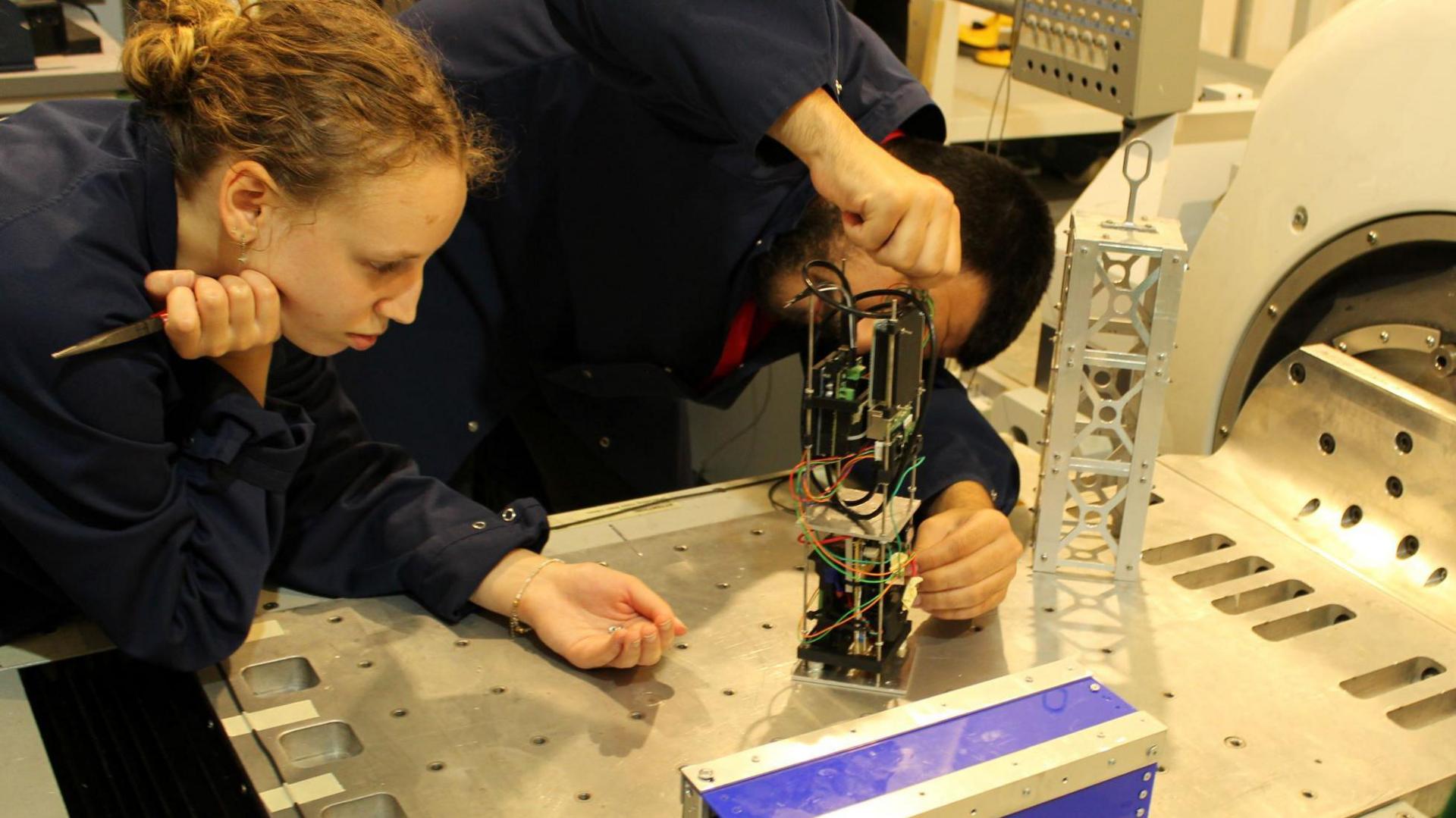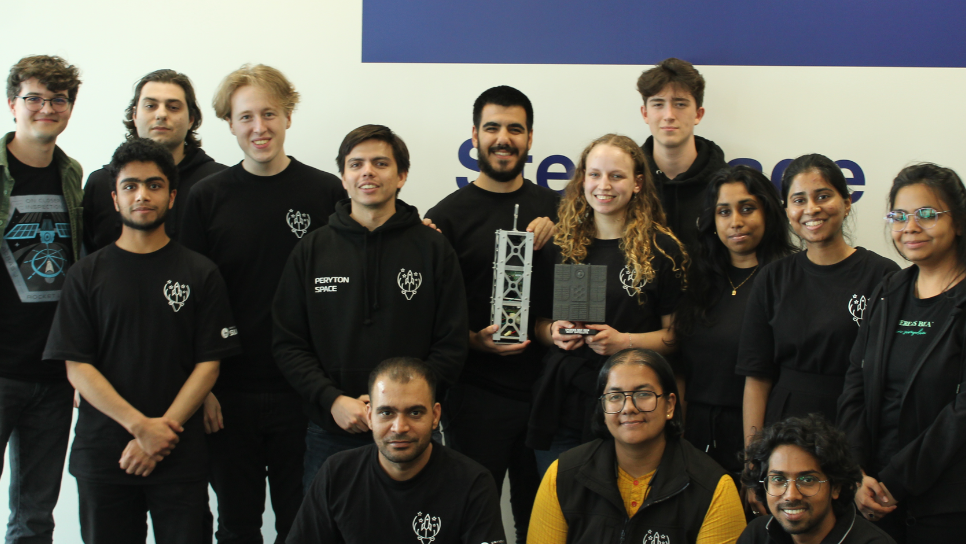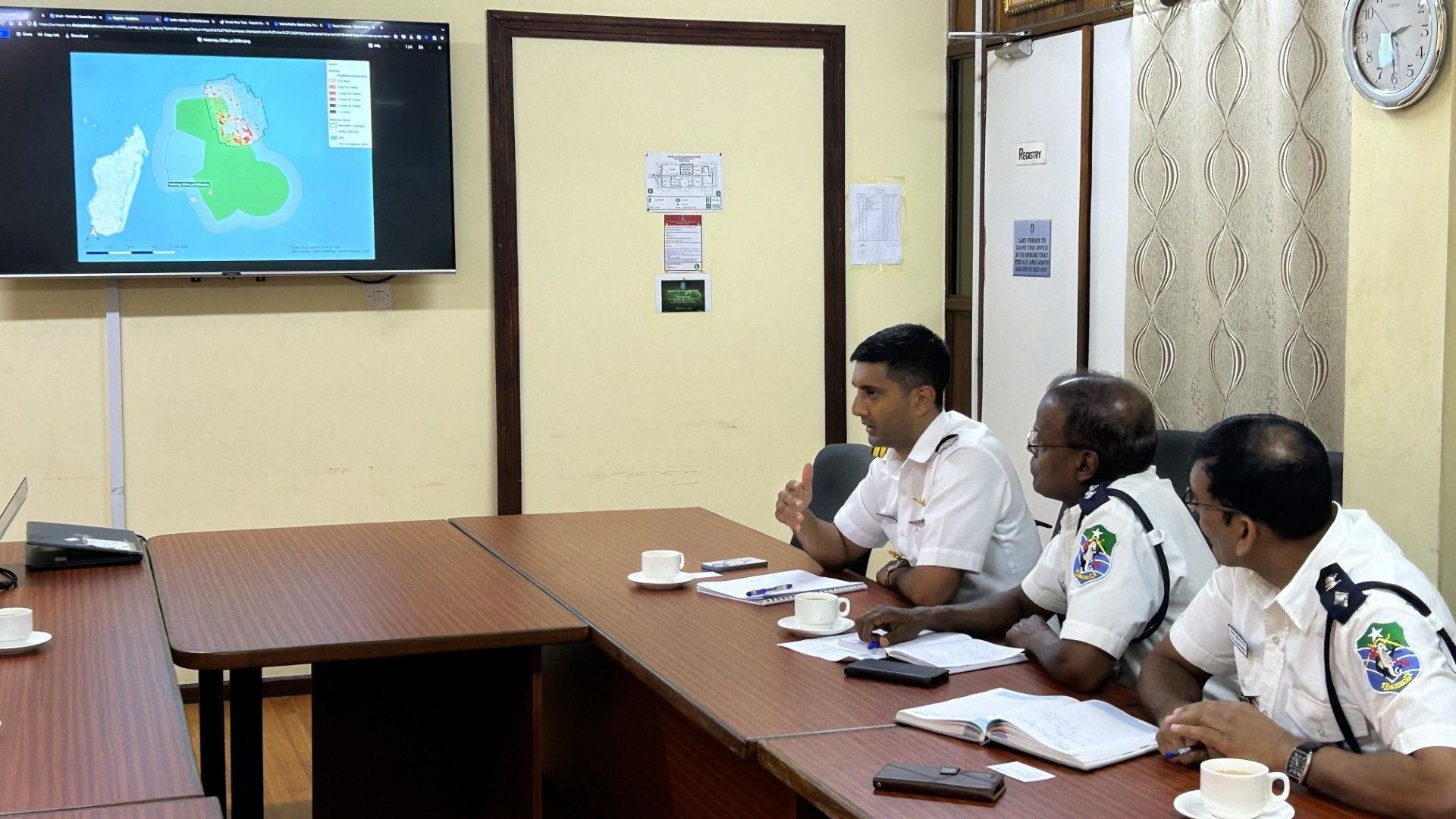Students' wildfire detection satellite wins top award

University students Mya White and Terry Savva work on the Darwin satellite project
- Published
A satellite designed to detect and track wildfires from space has won a prize for the developers at the University of Surrey.
The Darwin project won the best design award in the UK Students for the Exploration and Development of Space competition.
The university's Peryton Space department beat teams from around the country for the second year in a row with a budget of just £500.
Peryton team leader Mya White said: "We used a thermal camera to detect heat spots and an optical camera to determine distance so that we could calibrate the temperature readings."
Darwin – Detection, Analysis and Research for Wildfire Investigation Network – measures just 10cm x 10cm x 30cm.
Ms White said the team developed software to split an area being monitored into a grid "so we could pinpoint exactly where the simulated fires were".

Surrey's Peryton Space team has won a prestigious satellite design competition
The student team has enjoyed other success this year, taking first prize in Orbit Servicing and Manufacturing competition.
It combined their skills in design, engineering and business.
It was also runner up in a national student rocketry competition while the team also impressed the judges at the Race2Space National Propulsion competition, creating and testing rocket engines.
Harvey Nixon, who leads the research and development branch of Peryton Space, said the team comprises students from all backgrounds and disciplines "which ensures we have a range of expertise, and our members get invaluable experience ready for careers in the space sector”.
Some of the students are now working on the Jovian-1 satellite project, which will be controlled from the university's ground station at the Surrey Space Centre.
Related topics
Related external links
- Published22 January 2024

- Published21 April 2024
